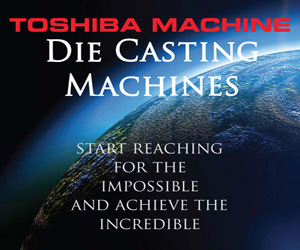Die castings often operate at temperatures that affect mechanical properties to some extent.
Temperature effects on die casting alloys are usually greater than on brass, iron and steel, an important consideration when die castings replace brass, iron, or steel components. Conversely die castings are usually less affected by temperature than injection-molded plastics, so that designs may often be simplified when converting from those materials. Temperature effects on die casting alloys are not generally prohibitive, provided that they are addressed adequately in the design. The effect of temperature on the mechanical properties of aluminum, magnesium and zinc and ZA alloys have been documented and published and can be viewed in the following figures:
- Figure 42: “As-Cast Properties of Aluminum Die Casting Alloys at Various Temperatures”
- Figure 53: “Short-Time Temperature Exposure Tensile Properties AZ91 Magnesium”
- Figure 63: “Effect of Temperature on Young’s Modulus for AZ91”
- Figure 74: “Effects of Temperature on Impact Strength for Zinc Alloys 5 and 3”
- Figure 84: “Effects of Temperature on Tensile Strength and Elongation for Zinc 5 and 3”
The following summarizes the general effects of temperature changes on mechanical properties of die casting alloys:
- Tensile and yield strengths generally increase slightly as temperatures are reduced and decrease at a progressive rate as temperatures increase.
- Modulus of elasticity is more stable than strength.
- Ductility decreases uniformly with decreasing temperature and increases with increasing temperature.
Creep does not occur below the threshold temperature. The rate increases progressively with increasing temperature.
- Metals Handbook, 10th Ed., ASM International, Materials Park, Ohio, 1990.
- Product Design and Development for Magnesium Die Castings, Dow Chemical USA, Midland, Michigan, 1984.
- Engineering Properties of Zinc Alloys, 2nd Ed., International Lead Zinc Research Organization, Research Triangle Park, North Carolina, 1981.








